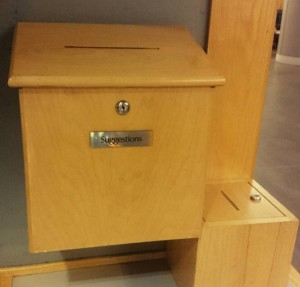
With Princeton ranked as the No. 1 school in America, it’s easy to assume that everything here is the best that it can be: We have great professors, amazing resources, and will graduate with a degree that is highly esteemed around the world. Surrounded by all of the University’s accolades, we oftentimes forget how important the student voice is to the University’s growth and development. Over these past few weeks, however, I’ve discovered how integral students are to improving academic and social life here on campus.
A few weeks ago, I attended my first Council of the Princeton University Community (CPUC) meeting, where students, faculty members, administrators and President Eisgruber met to discuss topics regarding to the climate, culture and policies of the campus. I felt that one of the most useful components of the meeting was the time for community questions, during which many students asked about how the University planned to address student requests for various policy changes. Many of these requests, including the request for cultural competency training for professors, were diverted to the various task forces that have been developed by the University for addressing these issues. I have been working closely with Nic Voge at the McGraw Center for Teaching and Learning on developing a sketch of the cultural competency training proposal, as I believe this request can have a great impact on research and independent work with faculty advisers. Cultural competency training could help some students feel more at ease in discussing their research interests with their advisers, resulting in better student-adviser relationships and research projects. Hopefully my efforts with McGraw, in conjunction with the efforts of the Black Justice League and the various task forces, will therefore result in the enactment of campus-wide change in relation to these topics.
Last week, I also attended a meeting for the Psychology Department’s Undergraduate Education Committee. As a member of the group, I am tasked with the duty of providing suggestions to the department administrators on what they can be doing to improve the student experience. During the meeting, many students expressed their concern with the lack of coding experience they’ve received as concentrators in psychology, and requested more exposure to things like MATLAB in preliminary courses. Others brought up issues regarding the limited departmental funding for senior theses, and suggested we hold fundraisers or ask department alumni to give back to the department. These suggestions would directly effect student research opportunities on campus, as more coding experience would mean better preparation for independent work, and more funding would lead to things like more complex theses and students doing research abroad. I personally brought up the need for more resources for students applying to graduate school in psychology, and suggested that the department appoint a faculty member or administrator to help students with the graduate school process. The administrators seemed very receptive to the committee’s suggestions, and will hopefully work with the members of the committee to bring these changes about.
Overall, my experiences in the past few weeks have taught me two things: 1) The University has established groups for students to voice their concerns, and 2) It is imperative that students take advantage of these groups to provide feedback and suggestions for bettering our campus and community. I plan to continue engaging in both dialogue and activism on this campus to help make Princeton the best place it can be, and encourage other students to do the same! Here are some ways you too can get involved:
- Attend a CPUC Meeting! More information on the committee can be found here: https://www.princeton.edu/vpsec/cpuc/
- Get involved with USG! More information on USG can be found here: http://princetonusg.com/
- Contact your department administrators and see if there is any formalized way to provide student input; if not, see about starting one!
-Jalisha Braxton, Natural Sciences Correspondent

